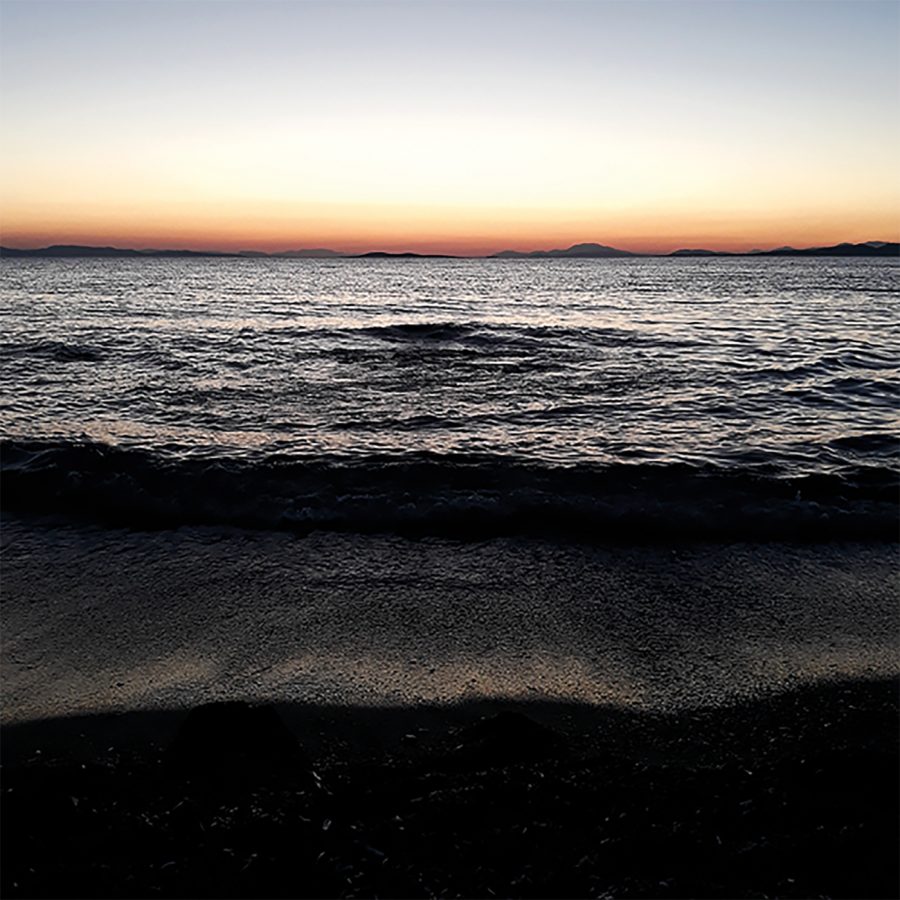JOACHIM SPIETH is a German electronica producer whose name we first came across in that great explosion of German electronic talent in the late Nineties; labels such as Basic Channel, Chain Reaction, City Centre Offices, Kompakt; and it was at this latter that Joachim first made his name, appearing on compilations such as Total 1, to which he contributed the wonky tech-house textures of “Abi ’99”; and the seminal Pop Ambient, which opened with his track, “You Don’t Fool Me”.
Since 2008 he’s been running his own imprint, Affin, for whom he records as well as releasing deep minimal tech by artists such as Toko Fuko (check out “Astatine” from his 12″ from earlier this year) and Vâyu. Joachim himself has proved a rather adept tech voyager, playing with the mantric possibilities of not only that stripped-back dancefloor pulse, but more glacial, longform ambient atmospheres on albums such as 2017’s Irradiance and 2020’s Tides, which really dived into innerspace.
To welcome in what we can all hope is a much, much better new year, he’s releasing his third album for Affin, Ousia, on January 13th; it’ll come in a digital format and, for all you waxheads out there, as a loud-cut double vinyl pressing; the better to fully immerse in all the sonics he’s created.

And a very lush sonic space Joachim unfolds for you, too; from the grandiose chill of the opener, “Sparsha”, which exists in the same polar arena as much of Thomas Köner’s recordings – all bass hum and drone, glacial sheets of higher tone sliding across your vision, other subterranean knockings and chatter – you know you’re in for a real aural trip. “Jiwa” is a masterful essay in sparse notation, deep dub space, returning echoes; it’s amniotic without ever venturing into twee or cliched.
“Mutuus” is the only collaborative piece of the eight, and sees Joachim team up with Markus Guentner, the Regensburg-born producer and occasional fellow Affin contributor, who also appeared way back last century (!) on Pop Ambient. It’s in no hurry to resolve to anything at all beyond its own verdant synth sweeps and hums, overtones ringing through; and neither should you be. Loosen those muscles because you have to go with it; it beckons you to slip in and let go.
“Akasha”, named for the Hindu cosmological concept of space and the ether, is a brighter, sharper thing, reinvestigating the breathless possibilities of a note decaying through perfect resonance and returning tones. It has the harder glimmer of say, a shaft of light breaking through to pick out the bare rock and snow of a higher country; elemental, a higher plane of being, asking for a relaxed focus and an attuning; while “Hyle” feels like the silent, stilling aftermath of an avalanche on the lower slopes, white spume arising as the snow settles and cloud-shadow plays over the contours.
“Apas” is more solar, if you’ll permit me; it has a very gradual pulsing and filter sweeps of tone that pan across, warming like rays. Perfectly positioned speakers a must for full encapsulation is my tip. “Forma” has this gorgeous susurration like the backwash of pebbles in a tide. It’s possibly the closest track here to something you’d imagine Global Communication creating at their peak. Your longshore drift is arrested by taut, judiciously placed, higher single notes, with a plucked tonality.
Your final peregrination of the album is “Anta”, which develops the transactive sonics of the preceding track with some actually arresting single strokes of the piano, proud against the undulating drone-haze on which they are cushioned, all hum and grain and chordal colour, swelling and clouding and singing.
It’s a lovely album, is Ousia; it plays firmly inside the pocket of modern ambient electronica while finessing and polishing the spatial and aural possibilities of the sphere. It ain’t broke, so Joachim has seen no need to fix it; but the closer you peer into the depths Ousia affords, the more you’ll see – and you’ll find it hard not to fall in.
Joachim Spieth’s Ousia will be released by Affin on digital download and 2xLP on January 13th; you can order yours from his Bandcamp page now.
Follow Joachim at his website, on Facebook, on Twitter and on Instagram.














No Comment